You can now support Pisetska’s family whose story The Slovak Spectator shares in the article below. Make a donation through Donio, a fundraising website that always hands over 100 percent of the raised amount.
For Yulia Pisetska, a 53-year-old Ukrainian mother, the year she spent in the Syrian city of Aleppo before having to flee was filled with memories that she will never forget.
Six months before the start of the Syrian Civil War, in early 2011, Yulia’s Syrian husband had bought a house in the city for their family after twelve years of hard work and saving up. But the family did not enjoy their new home for long. Several months after the war broke out, Yulia and her children left for Ukraine. She suddenly found herself looking after five children on her own after her husband, whom she met years earlier while living in Syria, decided to stay and died later in the armed conflict.
Today, Pisetska says that Syria is a closed chapter for her, even though the memories of that war are a burden that is hard for her to relieve.
“At night, armed people broke into our flat and beat my husband around the head after a short fight in front of our children,” the mother recalls. “You sit under the table and realise that you can’t do anything. It’s a feeling of helplessness.”
Her husband was not killed in the attack at their home, but died later in the war.
In the first months of the war in Syria, it was Yulia’s eldest son, Zakaria, who helped her with the other children and reassured her that everything would be fine. He was just 10 years old at the time. Several months into the war, a Ukrainian evacuation plane was sent to Syria to evacuate the family and other people from Aleppo, which by then was being destroyed in the fighting.
“I told my friends at the time that Ukraine would send a plane for us, but they laughed at me because they didn’t believe me,” Pisetska recalls. “We were all considered Russian in Syria.”
She knows that she and her children were the lucky ones. For Syrian mothers with many children, it was difficult to escape the war.
“At that moment, I felt great pride in my country for not abandoning us,” the mother says, confessing that she often cries when the Ukrainian national anthem is played. She explains that it makes her feel like the whole country stands by her.
But a decade later, in February 2022, Pisetska found herself affected by war again, this time in her homeland, after Russia invaded Ukraine.
She was forced to relive the experience of being shelling in Aleppo when in her hometown of Zaporizhzhia, a centre of the metallurgical industry in southeastern Ukraine, came under attack. Afraid of witnessing another occupation, she packed up her family and sought refuge abroad. The family chose Slovakia as a destination partly because her eldest son, Zakaria had already been studying in university there for three years, so knew the country and spoke the language.
Another war
In 2012, when her family returned to Ukraine from Syria, life was not easy in Zaporizhzhia. They lacked money and the family did not live in their own dwelling at first. They stayed at Pisetska’s mother’s house until they could save enough money to buy their own place.
Her children held Ukrainian citizenship, spoke Russian and learnt English, which made their start in a new school easier.
“Even in Syria, they studied English and read books by torchlight if there was no electricity,” the mother says.
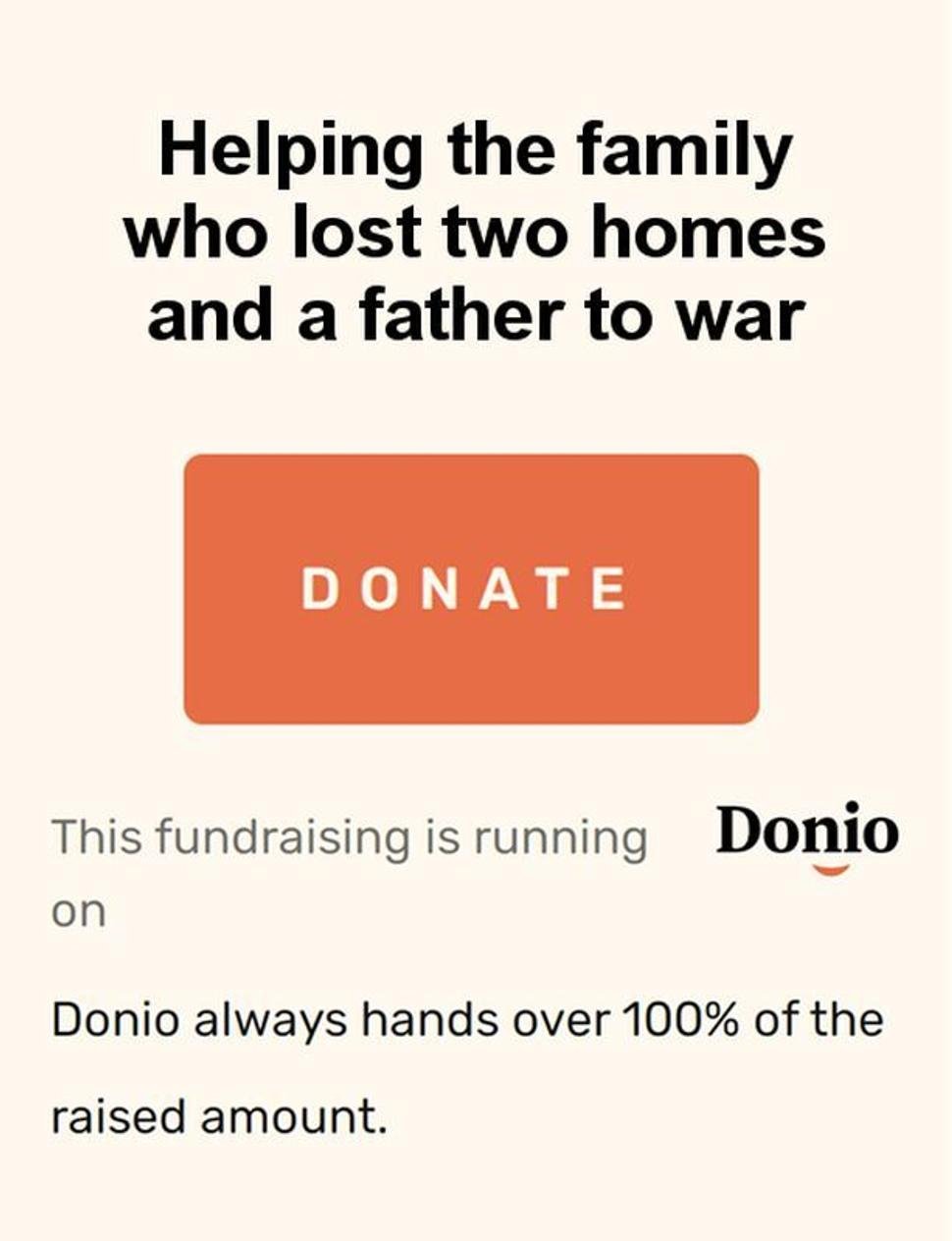 You can now support Pisetska’s family whose story The Slovak Spectator shares in this article. Click on this picture to make a donation via Donio.
You can now support Pisetska’s family whose story The Slovak Spectator shares in this article. Click on this picture to make a donation via Donio.
None of them, however, expected the events of February 24, 2022: Russia’s invasion of Ukraine, which forced them to flee their home for the second time. Living in the Ukrainian city, which is near the front line, Pisetska felt that the occupation was unavoidable.
“For me, the [prospect of] occupation is much scarier than the shelling,” she maintains.
But there was a hitch: she had to look after her sick mother in Ukraine, in addition to her children and several cats. This situation complicated her plans to relocate to a safe refuge on several occasions.
“It was impossible to go down to our shelter or flee with my mother,” Pisetska explains.
At the same time, she knew that she had to save her children’s lives.
“With my mother, I had no idea how it could be done. We didn’t have a car,” the mother explains.
Evacuation trains were the only option. Her three teenagers – Kenena, Luna and Muhammed – were first sent to Lviv, western Ukraine, in March 2022. From Lviv, they headed to Slovakia to reunite with Zakaria, their older brother.
Their journey to the Slovak border was difficult. The children spent two days travelling without any certainty that the border guards would let the underage children cross the border. According to their mother, “The important thing was that they were alive.” Using their English, at the border the children got to know Eduard Filo, head of the Slovak Association of Christian Youth Communities organisation. He helped get them to their final destination: Bratislava.
Pisetska, together with her mother and her youngest son, Hassan, remained in Zaporizhzhia.
Son in the spotlight
Though Pisetska was 1,500 kilometres away from her children, she was still hesitant about relocating to Slovakia with her ill mother. On the other hand, Hassan missed his siblings very much.
“The children had been together all the time. Without brothers and sisters, Hassan was completely apathetic,” the mother recalls. “It would probably have been easier for him to survive if I had gone instead of them.”
She eventually agreed to send the 11-year-old by train to western Ukraine and then to Bratislava. As soon as he reached the Slovak border, the story of his journey captivated the world’s media. The mother, on the other hand, became the target of Ukrainian people on social media who criticised her for deciding to send her child unaccompanied on such a trip.
“I often replay the situation in my head and think whether I could have acted differently,” the mother says. “I’m like a cat that carries her kittens to a safe place, one at a time.”
The trip was a huge test for her boy, the mother admits, but he was not poor or abandoned, as some media reports portrayed him. He was travelling with friends on the train, and he was constantly in touch by phone. Ukrainian volunteers helped him get to Uzhhorod, the main Ukrainian city on the border with Slovakia. Filo had received a photo of Hassan beforehand and was expecting him at the border, his mother explains. Hassan had a phone number written on his hand, something his mother had learnt during the civil war in Syria.
“I wrote that number on his hand because anything could happen on such a trip,” Pisetska says today.
Hassan crossed the border at Vyšné Nemecké on March 5, with a small rucksack and a bag in his hands.
“In that bag, he wanted to bring sweets to Bratislava for his brothers and sisters,” his mother laughs.
The siblings had complained to him that the sweets in Slovakia were expensive.
The story of this family touched many people around the world. Calls from Syria, Japan, China and other countries soon followed.
“The children even joined a live English broadcast twice,” the mother claims.
Pisetska believes that the story of her son’s journey helped people to understand that it is important to support and help each other.
Reunification
Because the volunteers in Slovakia now knew about Pisetska’s children, they began trying to evacuate her and her mother from Zaporizhzhia.
The support of well-wishers and the happy ending to Hassan’s story gave her and her mother the strength to set out on the long journey. Accompanied by their dog, they boarded an evacuation train to Slovakia.
“That’s how we united with everyone,” Pisetska explains.
They are among more than 109,000 Ukrainian refugees who have been granted temporary refuge in Slovakia since early March 2022.
In Slovakia, it was her son Zakaria who took care of all administrative and organisational issues, as he was fluent in Slovak after his three years of studies in the country. At first, they stayed in the town of Trenčín, western Slovakia, for 10 days. Then people in Slovakia helped them find a flat in Bratislava.
Their life is far from straightforward in the capital city, but it is at least peaceful.
“We live our lives but we don’t know what tomorrow will bring,” Pisetska says.
Zakaria is continuing his studies at a Bratislava university, while Muhammed and his sisters Kenana and Luna, who are classmates, study at a local grammar school and at a Ukrainian school via the internet to practise their Ukrainian. Luna wants to return to Ukraine, but Hassan, who studies in the 7th grade at a Bratislava primary school, likes Slovakia, his mother says.
Because of the events that her children have experienced in the past year, it is very difficult for them psychologically. They often fall ill, Pisetska says. She herself previously underwent major cancer surgery, so cannot work full-time.
She and her older children take various temporary jobs to earn at least some money and to get by in Slovakia, where it is difficult for them to adapt to their new life given the uncertainty about events in Ukraine. Still, she has said that she is very grateful to those people who have helped them.
Pisetska is also glad that the Slovak government has extended the housing compensation scheme for Ukrainian refugees until the end of May; without it, she would have to look for a new place to stay and be forced to find a full-time job, even though she is unsure that she would find one given her health issues and the fact that she needs to look after her ill mother.
Having spent nearly a year in Bratislava, the capital of Slovakia, without having to fear for her and her children’s lives, she has only one wish in addition to returning to Ukraine one day.
“I don’t want to be in such a situation ever again in my life. I fear occupation.”
Against all the odds, the Ukrainian mother is convinced that she and her family will eventually return to their home in Ukraine, and that they will be reunited with their cats.
“Twice we had to give up everything and run away, but it’s okay,” Pisetska says. “Life is the most important thing. Everything can start from scratch if people are alive.”


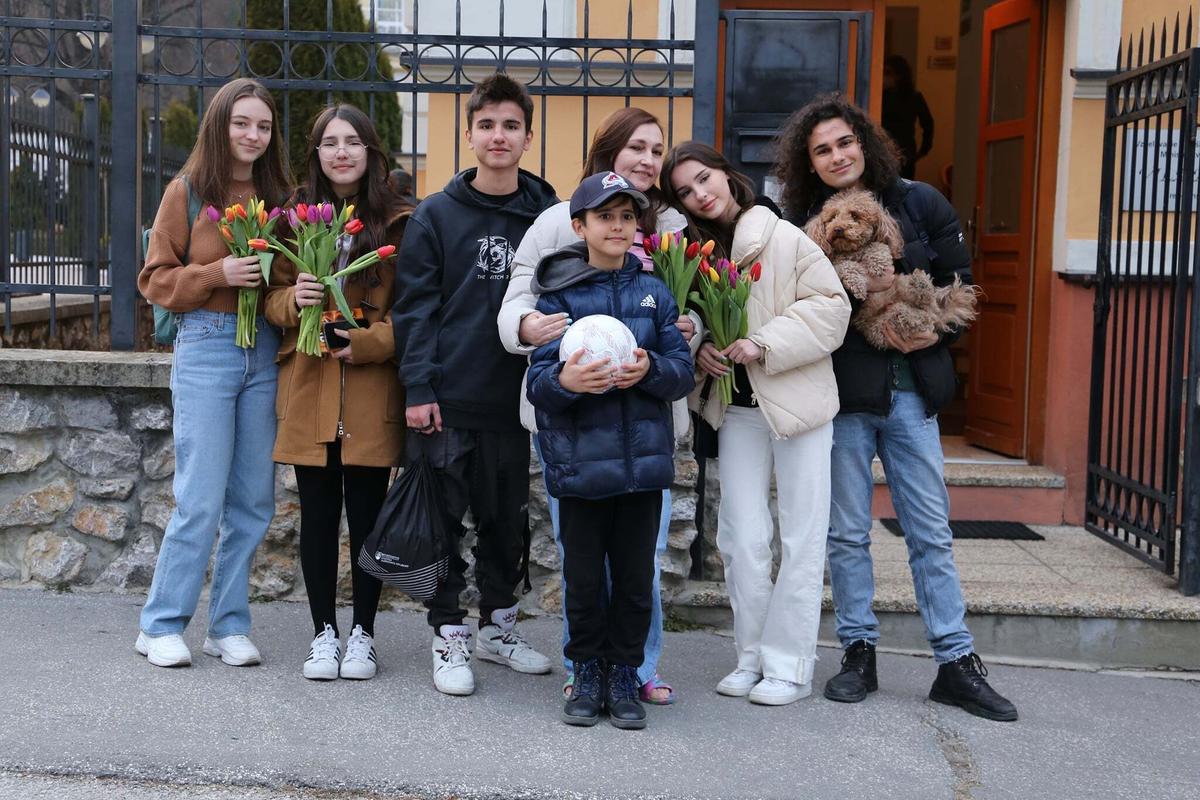 Yulia Pisetska with her children. (source: Facebook/Slovak police)
Yulia Pisetska with her children. (source: Facebook/Slovak police)
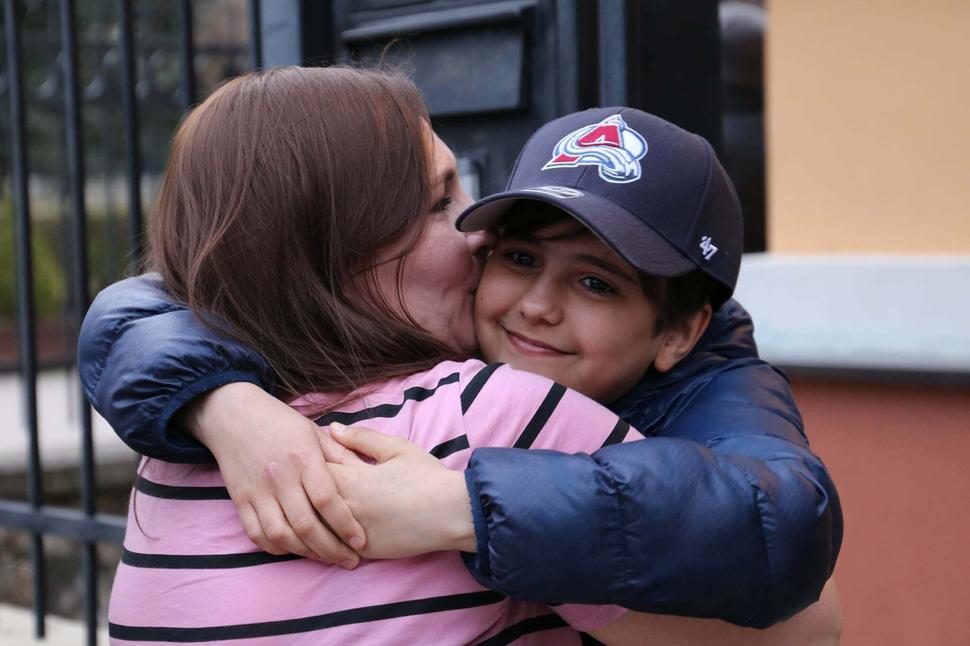 Yulia Pisetska hugs her son Hassan. (source: Facebook/Slovak police)
Yulia Pisetska hugs her son Hassan. (source: Facebook/Slovak police)
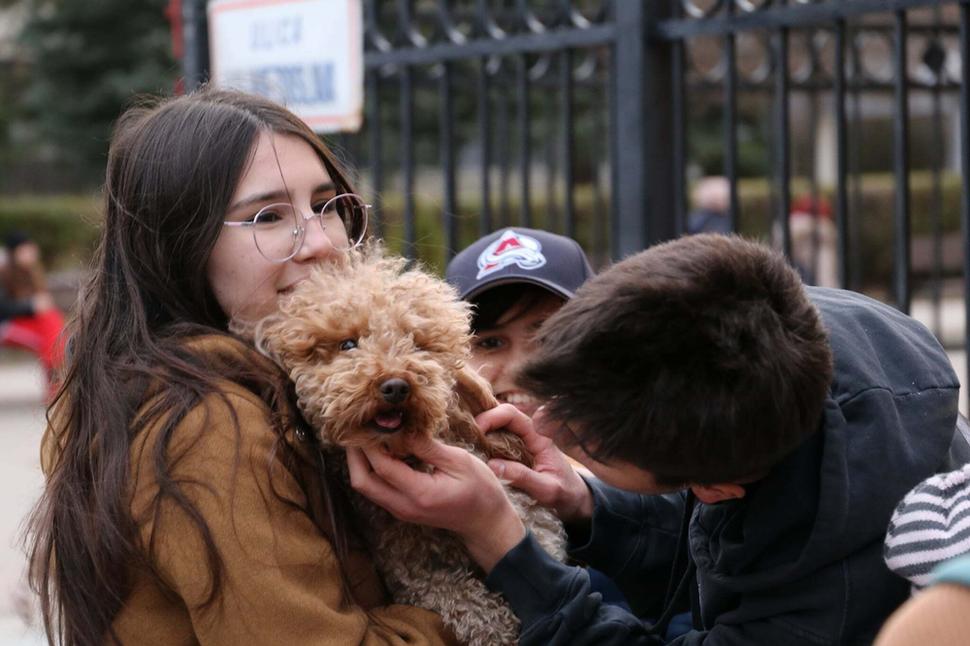 Yulia Pisetska's children play with their dog. (source: Facebook/Slovak police)
Yulia Pisetska's children play with their dog. (source: Facebook/Slovak police)
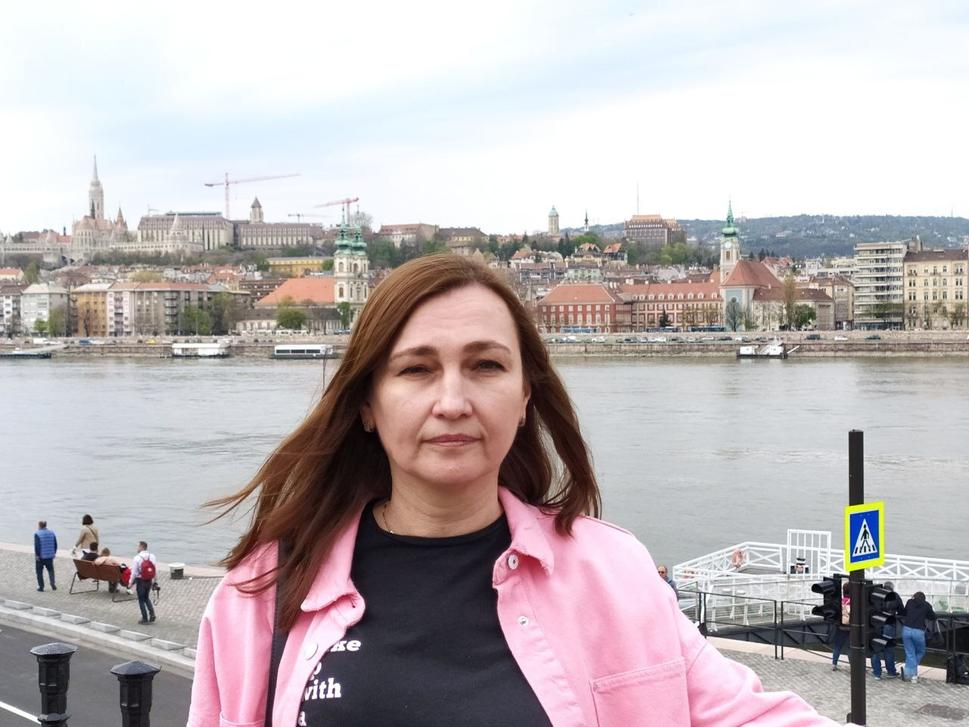 Yulia Pisetska. (source: Y. P.)
Yulia Pisetska. (source: Y. P.)